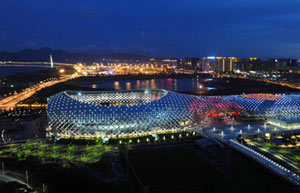Shen Jianguang, chief economist with Mizuho Securities, said the inflow of capital from emerging markets and a large space for the renminbi's appreciation might blow bigger bubbles in China's housing market.
Officials of China's State Administration of Foreign Exchange said risks for the inflow and outflow of hot money coexist in 2014.
Ma Jiantang, commissioner of the National Bureau of Statistics (NBS) of China, said the trend for the Chinese economy would not change much as long as China continued to promote urbanization, industrialization, informatization and agricultural modernization.
During this process, Ma said, massive demand for investment and consumption would be created and efficiency of supply would be improved.
The NBS said China's economy grew 7.7 percent in 2013, the same as 2012, overshooting the government target of 7.5 percent, and gross domestic product totalled 9.3 trillion U.S. dollars.
The Chinese economy can maintain stable growth thanks to a good environment brought by its peaceful development policy abroad and the reform and opening-up policy at home.
However, no tangible results had been achieved since China called for transforming the economic growth mode nearly two decades ago, Chinese economist Wu Jinglian said, highlighting that marketization would make a breakthrough in China's economic transformation.
Joachim Fels, Morgan Stanley's chief international economist, warned China's transition from export- and leverage-driven growth to consumption- and reform-driven growth could turn out to be more tricky in the near term, mainly because financial conditions had tightened considerably, as evidenced by higher money market rates and bond yields.
How to ensure the implementation of reform measures, promote comprehensive reform, change the current structure of interests while coordinating effectiveness and fairness, are the issues facing Chinese policy-makers.
Don't miss:
|
 |
 |
| China's top 10 richest cities |
